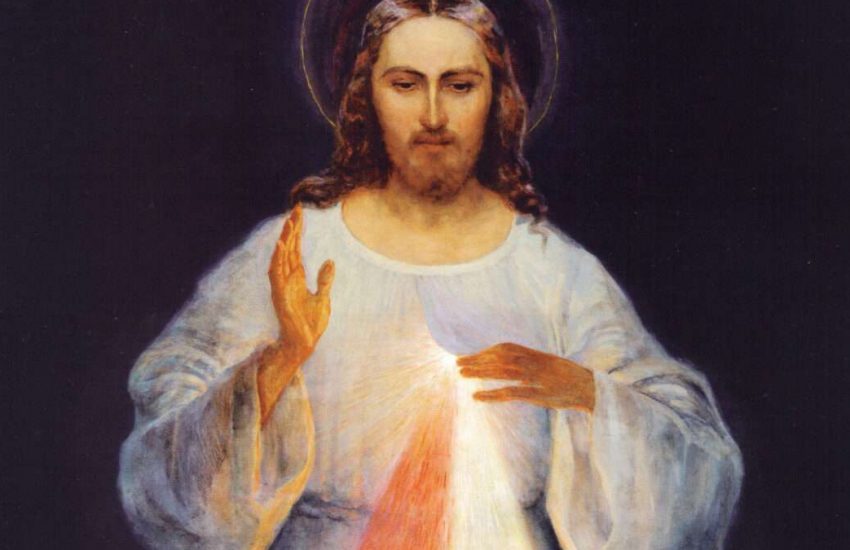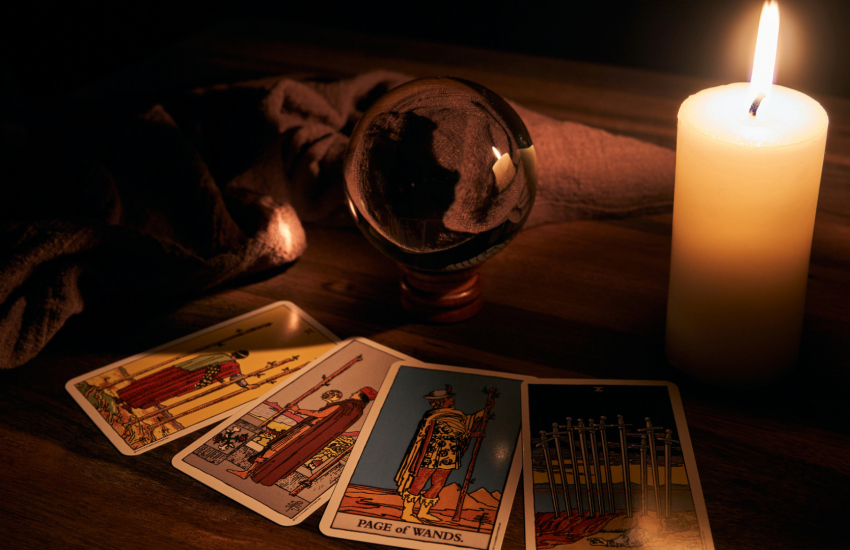Gospel For Today – 2nd Sunday of Ordinary Time (A)
SECOND SUNDAY OF ORDINARY TIME (A)

Last week I wrote that through our baptism we are united with Christ's death and resurrection, and born again as children of God. This is true. When we say that these things are brought about through baptism, we are not speaking symbolically — at least not in the sense that we typically think of something being symbolic.
A symbol is a sign of something else, but we usually understand the symbol to be something quite distinct from the reality it signifies. For example, the US flag is a symbol of our nation. But you and I know that the flag, that rectangle of colored cloth, is not actually the United States of America. It's a piece of cloth. But it is a symbol that represents our country and so we rightly respect it and treat it with a certain dignity; not because the flag itself is worthy of honor, but because we give honor to the thing being represented.
That's how most symbols work. A picture of my mother is a symbol that represents her and brings her to mind. And I may value that picture because I love my mother. But I know that the picture is not my mother.
But that's not how baptism works. Baptism is a symbol, but it is a special kind of symbol that we call a sacrament. The Catechism calls sacraments "efficacious signs of grace, instituted by Christ and entrusted to the Church, by which divine life is dispensed to us" (CCC 1131). Another common definition of sacrament is "a visible sign of an invisible grace." A sacrament, such as baptism, is a sign, which is another way of saying symbol. But it is an "efficacious sign." That means it is a sign that actually brings about what it signifies. In other words, baptism doesn't merely represent our union with Christ's death and resurrection. It actually causes that union to occur.
This is the way that all the sacraments operate. The Eucharist is not just a symbol of Christ's Body and Blood. It is Christ's Body and Blood. Through Reconciliation we do not receive a representative forgiveness, we are truly forgiven by God. God is the main actor in each of the sacraments He instituted, and there are seven: baptism, confirmation, Eucharist, confession (or reconciliation), matrimony, holy orders and anointing of the sick. Through each of these God makes His grace present to us in a special and particular way.
There are human actors, as well. There is the one receiving the sacrament, of course, and also the minister who typically administers the sacrament (the exception being marriage, in which case it is the couple receiving the sacrament who administer it to each other). There is a ritual formula. There is a physical element. God uses aspects of His creation to impart His grace to us. We are both physical and spiritual creatures, and so when God comes to us through the sacraments He established in His Church, He comes to us through both physical and spiritual means. Baptism involves cleansing with water; that is the physical aspect. We can see the clean, pure water. We can hear the sound of it being poured out. We can feel the cool wetness on our skin. We feel "washed."
But more than the physical aspect, there is a supernatural aspect to baptism that we cannot see or hear or feel but is nevertheless there. John said in today's gospel reading that he baptizes with water, but Christ baptizes with the Holy Spirit. When John administered the waters of baptism to Jesus, he saw the Spirit of God descent upon Him like a dove. You and I may not be able to see it, but that happens at each and every Christian baptism. The Spirit comes to rest upon the one newly reborn in Christ.
Baptism is the first sacrament of initiation into the Christian life, the sacrament that opens the doors of grace and brings us into the body of Christ. It is the first sacrament we receive, and the majority of Catholics (excluding converts to the faith such as myself) are baptized as infants shortly after birth. You may not be able to remember your baptism, but this is what happened to you. (And if you are unbaptized and reading this, know that this can be yours).
Baptism brings about the forgiveness of sins — all sins, both original sin and any personal sin the one being baptized may have committed in life. Further it removes all punishment for sins. In baptism one is made a new creation. The old truly passes away and is no more (CCC 1263).Baptism fills you with "sanctifying grace," making you a son or daughter of God. The word "sanctify" means "to be made holy," and the word "grace" means "gift." Baptism is a gift to help you become holy. It strengthens you, giving you the theological virtues of faith, hope and love, which are aimed chiefly at God Himself (you have faith in God, you hope in God, and you love God). Baptism gives you the power to live your life guided by the Holy Spirit and to grow in goodness by living a virtuous life (CCC 1266).Baptism makes you a member of the universal Church, the Body of Christ. You become united, in Christ, with Christians of all nations and races, of all places and times. You share in the priesthood of Christ, meaning you are called to serve others, under the authority of the Church, to help spread the good news of God's love and mercy (CCC 1267-1270).Baptism also leaves an indelible mark on your soul, marking you as one who belongs to Christ. "No sin can erase this mark, even if sin prevents Baptism from bearing the fruits of salvation" (CCC 1272).
This last point is important. Perhaps you read the above and said, "Wow, that sounds great, but I was baptized as a baby and I don't exactly feel any of that." It doesn't matter. That's the glory of the sacraments. A sacrament works whether you "feel" it or not. A sign, as we commonly think of it, only has meaning if we choose to give it meaning. But a sacrament is an "efficacious sign." That mean it is effective on its own. Whether you feel it or not, God's grace is truly there.
It is possible for us to ignore that grace. And perhaps you have been ignoring all the gifts of baptism that I just described above. Perhaps you have not been living them out in your life, not allowing them to bear fruit. Perhaps you have forgotten about those gifts entirely. It does not matter. They are still there. You still bear the mark of a child of God, and not even the gravest of sins can wipe that mark away. You belong to Him.
If this is you, then I invite you to start living the grace of your baptism today. Baptism is the gateway to the sacramental life. If you have been away from that life for a while, I invite you to recall your baptism and return to it. Come back to Confession and the Eucharist (the daily bath and daily bread of the Christian). You are a new creature, reborn in Christ, a member of a royal priesthood. God has great things in mind for you – nothing short of perfection. Don't settle for a life of mediocrity and sin. Start living the life of love and grace. Start living your baptism.
God bless,
Matt
—

WCU Catholic Campus Ministry
Matthew Newsome, MTh, campus minister
(828)293-9374 | POB 2766, Cullowhee NC 28723


